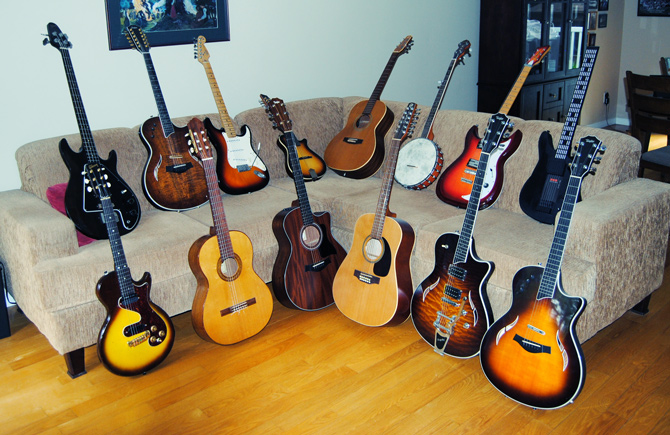Nehemiah “Skip” James (1902 – 1969) was an American Delta blues singer, guitarist, pianist and songwriter. James tuned his guitar in a rare open D minor chord, even though his songs were played and sung in the D major key. The resulting tonalities and resonances gave his music a haunting, ominous quality, more so than mainstream blues. James learned this method of tuning a guitar from his musical mentor, the unrecorded bluesman Henry Stuckey, who in turn acquired it in France from Bahamian soldiers during the First World War.
James first recorded for Paramount Records in 1931 but the recordings sold poorly, released as they were during the Great Depression, when people had no money to spend on records. Like most of the bluesmen recorded during that first great wave of big company recordings, James later drifted into obscurity until he was rediscovered in 1964 during the blues and folk music revival. During that time, James appeared at folk and blues festivals, gave concerts throughout the U.S. and in Europe, and recorded several albums for various record labels. His songs have influenced generations of musicians and have been adapted by numerous artists.
James recorded 18 songs in 1931, many of which are now classics of the blues canon, like my chosen piece here, “Hard Time Killing Floor Blues”, a vintage Depression-era song that speaks of people drifting like ghosts in an earthly purgatory. Like other songs James recorded, it is one of the earliest examples of gospel music merging with the blues. Son House, who recorded for Paramount Records at the same time, also played in this hybrid gospel/blues style – little wonder, since James and House were both ordained ministers. Later in the 60s, the gospel/blues style was expanded by artists like Ray Charles and Aretha Franklin.
An excellent version of “Hard Time Killing Floor Blues”, played by Chris Thomas King, is part of the soundtrack to the celebrated Coen brothers film “Oh Brother, Where Art Thou?” The soundtrack won three Grammys, including the Grammy Award for Album of the Year in 2002,
A few expressions used in the song merit an explanation: “killing floor”, widely used in blues parlance, is that part of an abattoir where the animals are slaughtered; “dry long so” is less frequently used and means worn out by poverty.
In late 1966, the British rock trio Cream (Eric Clapton, Jack Bruce, Ginger Baker) released their first album, which included a number of blues standards including Skip James’ “I’m So Glad”, another of his 1931 recordings. Clapton, ever respectful of blues music and the pioneers of the genre, ensured that all these old blues songs were properly attributed to the original composer. This was in stark contrast to other bands of that era, like The Rolling Stones and Led Zeppelin, who shamefully usurped the writing credits from these old and dying bluesmen, even going so far as stealing from contemporaries like Ry Cooder and Bert Jancch.
In the ‘70s, when Jack Bruce was playing at the Philadelphia Spectrum with Leslie West and Corky Laing of the group Mountain, Bruce went into the dressing room and met a little old lady sitting very uncomfortably, surrounded by the harsh din of rock music. It was Skip James’ widow. She had travelled all the way to Philadelphia to thank Bruce for recording “I’m So Glad.” She said her family had made more money from the recording royalties for this one piece than in all that Skip James had made in his lifetime as a musician. The money enabled him to have proper medical care at the end of his life and a decent funeral. Sometimes, merely doing the right thing can change lives.
I recorded “Hard Time Killing Floor Blues” as Skip James did in 1931. My voice and my guitar, tuned to an open D minor chord, are recorded directly through a microphone, just as things were done in pre-digital times.
Richard Séguin – voice and guitar
